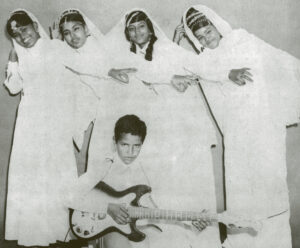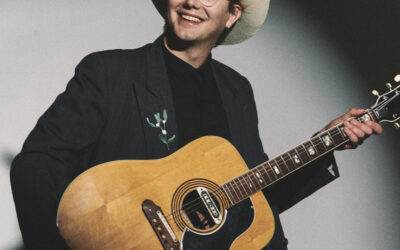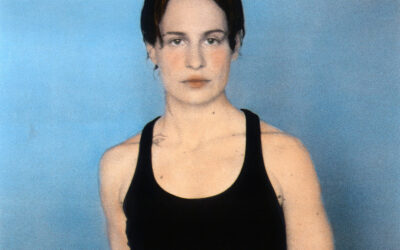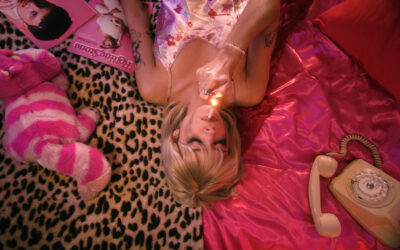In the run-up to this year’s edition of the Listen festival, we met Yooth, a true wizard of sound, who magically steered the night towards something more groovy, more colorful, and more energetic. This re-nouveau of the scene is mainly the work of motivated and innovative collectives like Brikabrak, the team that surrounds Yooth in his daily life. If you’re new to Brussels, be sure to hit one of their dance floors as soon as possible (if it’s not sold out when you arrive).
We would have loved to interview everyone to get everyone’s views on these questions, but for the sake of clarity, we let Yooth be the spokesperson this time. But since this is a collaborative movement, let’s give a proper shout-out to the rest of the group: DJs Bona Léa, Fahad Seriki, Jiem, Monicashflow, o’simmie, Ravi Bongo, Torito22, but also Alice, Alex, Arielle, who work on administration, marketing, volunteering, creative direction and everything else that isn’t DJing.
La Vague Parallèle: Hey Yooth, how are you? We know each other a bit, but could you introduce yourself to those who want to put some stories behind your name?
Yooth: I’m Ingmar (he/him), 27 years old. known as DJ “Yooth”, but I’m also a son, brother, friend, creative spirit, curator, graphic designer, radio host, promotor, and recovering perfectionist (laughs). I’m a man, but my gender expression is not that binary. I don’t feel the need to put myself in a specific box though. Brussels is what I call home, but I grew up in Limburg. It was quiet and peaceful, but too small-minded for me. I’m happy to be here.
LVP: It’s been a while since we’ve seen your name in the scene. How long have you been floating around in music? What made you realise that you wanted to be part of such a scene?
Yooth: I remember when I was in kindergarten I envisioned myself on stage. I don’t remember in what way or form but the vision was there. Then when I picked up DJing around the age of 14 something clicked and I never looked back. I love it so much, it’s insane. Everything I do is more or less catered to creating opportunities to share music. Host a radio show? No problem! Throw a party? Let’s fucking go! Dominate the aux cord at your home party? Hell yeah!
LVP: People might know you from your collective Brikabrak. How did it all start? What was the idea or motivation behind the need to form a collective?
Yooth: I needed a party where I could unapologetically share the music I liked. Then I wanted it to be more than a party and started a radio show on Bruzz, while inviting like-minded DJs to become residents. Gradually these DJs and some friends became more and more engaged and eventually Brikabrak became more collective and community-driven. I think that everyone who’s been part of the journey needed a place where they felt at home, could express themselves, and were allowed space to grow. We give that to each other.
LVP: If you had to define yourself and your peeps with more precise musical genres, which ones would you put first and why? What’s the story behind this passion?
Yooth: This is such a difficult question because our range is so wide. We’re all captivated by the act of exploring the soul of one genre in another genre, which makes it hard to pin things down. On our platform, you can hear a UK Bass track with amapiano influences, a trance track with West African percussion, dembow with rave elements… We used to call it global club music but got rid of it because it was just the electronic variant of the Eurocentric term ‘world music’. But in a sense, it is club music that could only exist in a hyper-globalized world, where musical boundaries do not exist anymore and art is super accessible online. I might start using global club music again (laughs).
LVP: Sometimes music can say more than words, could you give us three tracks/songs that would be the definition of your musical universe?
Yooth: Donsurf – Corcovado
Bok Bok – Melba’s Call (DJ Polo & NKC Remix)
Neana – Cyberia (Hagan Remix)
These are my personal current favourites. All these tracks exist in a universe where UK bass, club music, and South African genres like gqom and amapiano collide.
LVP: In your bio, you say that you try to “combine the floaty and soulful sounds typical of future bass with some more exotic and organic sounds”. Do you think this genre is the future of electronic music, or is it already quite the present?
Yooth: Oh god, I need to purge the internet of my old bios. But yeah, I was really into that future beats movement around 2016. SoundCloud was lit back then. It didn’t grow out to be a durable movement but some of its producers left a big legacy. The way Monte Booker made his 808 sound so wonky in Kolors (ft. Smino, 2016) for example became the standard 808 sound in Trap for a while. The way Sango incorporated Baile Funk samples in his beats kickstarted a whole wave of baile edits on SoundCloud. Although I don’t play what’s known as “future beats” anymore, some of its elements are still present in my current selections.
LVP: Most of your parties are full, you’ve brought a new kind of sound to Brussels, you’ve deconstructed the nightlife for a better inclusion of people and genres… Where are you now with your collective?
Yooth: It was a slow but steady process over the past seven years, and I’m content with where we are now. You can’t compare Brikabrak with anything else. That’s not something you achieve overnight. We still have a whole lot to learn but we’re at a point now where we got all the basics very right and can start thinking about the little details. We’re becoming more business-minded (WE STAND ON BIZZNIZZ), without losing our playful identity and are aiming to remain as consistent as we are.
I do feel some kind of hunger for new projects within Brikabrak, but with three radio residencies and parties every two or three months we are already very productive. Internally we’re slowly finding a new balance within the team regarding the task division. In the past one and a half years, five new important members have entered the collective and it takes some time to find the new groove. All of a sudden I found myself in a managerial role, which was completely new to me. I’m still finding my way in delegating responsibilities, but I’m eager to learn. After doing most of the heavy lifting myself for years, it’s time now to let go and accept not everything has to be done my way.
LVP: One day we had this conversation where you asked me if I thought Brikabrak was underground. After answering these questions so far, would you say that it is? Do you want it to be?
Yooth: As long as we don’t organize sweaty raves in some illegal bunker I guess you can’t call Brikabrak strictly underground, right? But the music that we play is underground though. Most of it is released independently, you don’t hear it on mainstream radio and it’s not made for the masses. However, I’m sure more people would be interested if they got in touch with it. I explained earlier that we like to explore the presence of one genre in another, so it always feels familiar, yet different. For me, that’s the best kind of art.
LVP: Why would you say that Brussels is a good place for this kind of development?
Yooth: Brussels breathes eclecticism. This city IS bric-à-brac, a collection of curiosities, a melting pot, call it whatever you want. That kind of identity rubs off its citizens (or it is caused by its citizens) so people here are generally open-minded and eager to discover new things.
LVP: Over the past few years, you and other major players in the nightlife scene have been invited by various festivals to talk about the scene, what’s good, and what needs to change. Have you seen any (positive) developments in the scene lately?
Yooth: Generally speaking, it feels like Brussels is doing pretty well when it comes to inclusive lineups, but the overall music industry could definitely be more diverse. When it comes to equal opportunities and equal pay there is still a lot of work to do and some scenes are terrible at giving credit where it’s due. The recent failure of UNESCO to mention Detroit’s black founders of techno in the recognition of Berlin’s techno scene as a world heritage is a good example. Another thing that could be talked about more is mental health. A lot of young promotors and artists need to fight for their place and often have jobs on the side to sustain their careers. It can become draining and sometimes even lonely, so more conversation and support around this topic are needed too.
LVP: You’re co-curating a night with Blck Mamba, we’ve seen you work together quite often. Can you describe your relationship? Is it mainly about the music or is there a very important human side that creates the magic?
Yooth: We’re really good friends outside of music. Last summer we went to a carnival in London together and that cemented our friendship. But being a fan of each other’s musical endeavors brought us together years ago already. Besides the resemblance in music selection, we also share similar visions, frustrations, and ambitions and have always talked openly about them. It’s a blessing to have friendships in this business where everyone genuinely wants the best for each other. Doing B2Bs with Blck Mamba is also mad fun because our way of mixing is practically identical.
LVP: Can you tell us a bit more about the lineup? Who decided what?
Yooth: Blck Mamba curated C12, I took care of C11. We received carte blanche from Listen Festival and came up with a very balanced lineup for both rooms. There’s a focus on strong locals in C11 with Bona Léa, Fahad Seriki, Rrita Jashari, Jonas Alexander (living in Paris, but grew up in Bruxelles), and myself. Blck Mamba invited international heavy hitters like Brodinkski, UK bass legend Ikonika and upcoming gqom producer STATE OFFF, supported by herself and Raql. We’ll start the night light and breezy and gradually go darker as the night evolves — that’s something our curations have in common.
LVP: For this curated night, is there an artist you are particularly eager to see perform?
Yooth: STATE OFFF. I’ve been playing his gqom edits over and over and he’s been teasing his album for the longest so I’ll finally hear his new work in the club.
LVP: How important are festivals like the Listen Festival for a scene? For the development of a city? For the development of your artistic career and the future of your collective?
Yooth: Brussels needs city-wide festivals to put our electronic music scene on the world map. These kinds of initiatives have the potential to gather people from all over the world, kind of like ADE in Amsterdam. It creates a buzz around the local actors and it serves as a great networking opportunity. We already have amazing nightlife in this city – Listen Festival just puts a big magnifying glass on it. For Brikabrak it’s fun to try out new venues. Two years ago we hosted in LaVallée in Molenbeek, this year we upgraded to C12. For a developing scene like ours, it’s interesting to take up space in what’s regularly known as a techno and house temple.
LVP: Can you tell us what we can wish you for in 2024 and so on? Any special projects in the oven that you can tease/share?
Yooth: We’re collaborating with Agneskena on a mini-video series to introduce all the members of Brikabrak, which will be cute. Besides, we’re part of Decoratelier’s closing festival and we just started a residency at Oroko Radio, which I will co-host with Monicashflow.
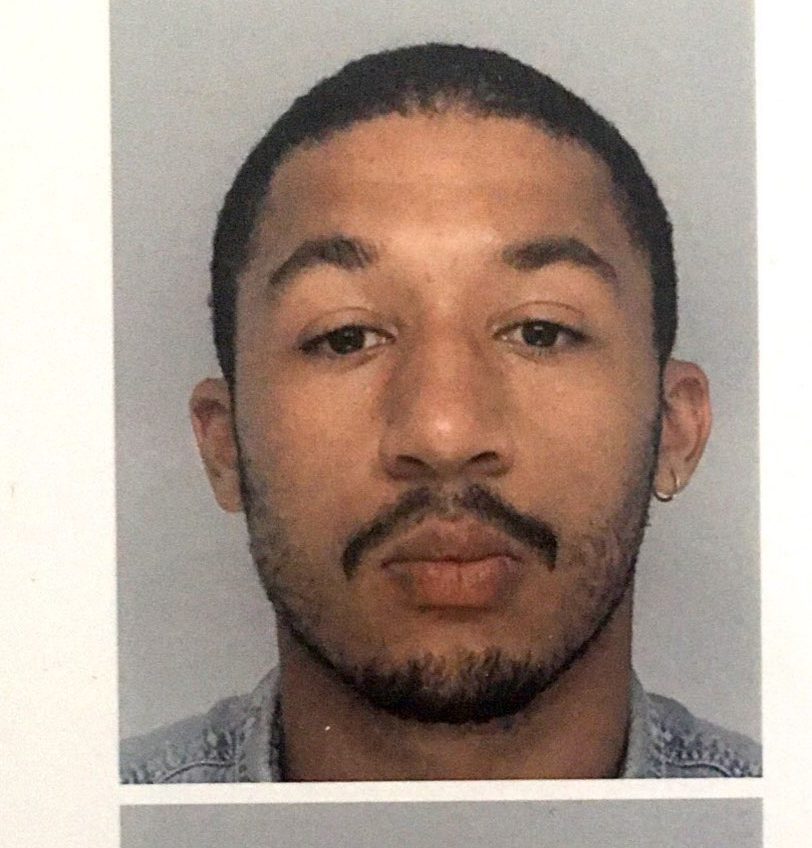
Bercé par une diversité musicale éclectique, Matéo est aujourd’hui spécialisé en électro, vous risquez de le croiser sur le dancefloor à débattre sur des questions politiques ou de société tout en dansant plein de sueur sur un BPM dépassant les 160.


